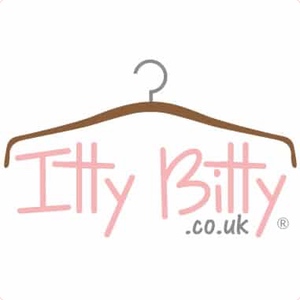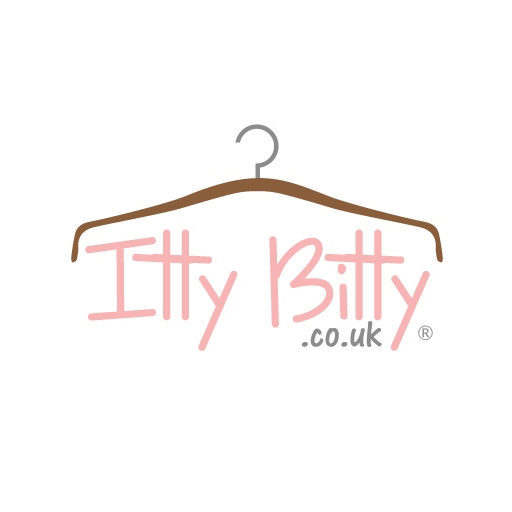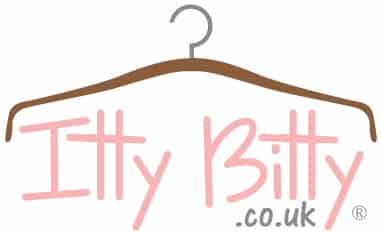Dressing Your Little One in Style: Choosing the Best Baby Apparel
 Welcoming a new bundle of joy into your life brings immeasurable joy and excitement. As a parent, you want the best for your baby, and that includes the clothing they wear. Selecting the finest best baby apparel involves considering comfort, safety, and style. Let’s explore the world of baby fashion and discover the key factors that make for the best baby apparel.
Welcoming a new bundle of joy into your life brings immeasurable joy and excitement. As a parent, you want the best for your baby, and that includes the clothing they wear. Selecting the finest best baby apparel involves considering comfort, safety, and style. Let’s explore the world of baby fashion and discover the key factors that make for the best baby apparel.
Prioritizing Comfort and Safety
Soft and Breathable Fabrics
The skin of a newborn is delicate and sensitive, making the choice of fabric crucial. Opt for baby apparel made from soft, breathable materials like cotton. Cotton allows for proper air circulation, reducing the risk of irritation or discomfort.
Avoiding Harsh Fasteners
Choose clothing with snap buttons, zippers, or gentle elastic bands. Avoid rough seams or tight elastics that could potentially irritate your baby’s skin. The ease of putting on and taking off the clothing also contributes to your convenience as a parent.
Checking for Safety Standards
Ensure that the baby apparel meets safety standards. Look for certifications on the clothing labels, indicating that the items have undergone rigorous testing for harmful substances and adhere to safety regulations.
Navigating Different Types of Baby Apparel
Onesies: The Ultimate Baby Essential
 Onesies, or bodysuits, are a staple in any baby wardrobe. They are easy to put on, provide quick access for diaper changes, and come in various adorable designs. Look for onesies with envelope necks for easy removal over your baby’s head.
Onesies, or bodysuits, are a staple in any baby wardrobe. They are easy to put on, provide quick access for diaper changes, and come in various adorable designs. Look for onesies with envelope necks for easy removal over your baby’s head.
Sleepsuits: Cozy Nighttime Attire
 For bedtime, opt for sleepsuits that cover your baby from head to toe. Choose ones with built-in feet to keep little toes warm. Sleepsuits with front or bottom zippers simplify nighttime diaper changes.
For bedtime, opt for sleepsuits that cover your baby from head to toe. Choose ones with built-in feet to keep little toes warm. Sleepsuits with front or bottom zippers simplify nighttime diaper changes.
Rompers: Playful and Stylish
 Rompers are versatile one-piece garments perfect for playtime or outings. They come in various styles, from casual to dressy, allowing your baby to be both comfortable and stylish.
Rompers are versatile one-piece garments perfect for playtime or outings. They come in various styles, from casual to dressy, allowing your baby to be both comfortable and stylish.
Caps and Hats: Protecting Tender Heads
Invest in soft, breathable hats to shield your first baby’s delicate skin and scalp from the sun or cold weather. Look for designs with a chin strap to keep the hat securely in place.
Socks and Booties: Keeping Tiny Toes Warm
 Choose socks and booties that stay on your baby’s feet. Opt for breathable, stretchable materials to ensure a comfortable fit without constriction.
Choose socks and booties that stay on your baby’s feet. Opt for breathable, stretchable materials to ensure a comfortable fit without constriction.
Dressing for the Seasons
Summer Wear
In warmer months, dress your baby in lightweight, short-sleeved onesies or rompers. Choose breathable fabrics like cotton to keep your little one cool and comfortable.
Winter Wear
During colder seasons, layering is key. Use sleepsuits, sweaters, and cozy hats to keep your baby warm. Ensure that the outer layer is windproof and water-resistant for added protection.
All-Season Essentials
Invest in all-season essentials like neutral-colored onesies, which can be layered or worn on their own. Neutral colors provide versatility and make it easy to mix and match with other pieces.
Embracing Style with Baby Fashion
Playful Prints and Patterns
Express your baby’s personality with playful prints and cute patterns. From animals to geometric shapes, choose outfits that bring joy and smiles to both you and your little one.
Mix and Match
Create a mini wardrobe by selecting pieces that can be easily mixed and matched. This not only offers variety but also makes dressing your baby a breeze.
Comfortable Accessories
Enhance your baby’s outfits with comfortable accessories like bibs, headbands, or bows. These add a touch of style without compromising on comfort.
Budget-Friendly Options and Sustainable Choices
Affordable Alternatives
While quality is paramount in newborn clothes, there are budget-friendly options available. Look for sales, discounts, or consider second-hand stores for gently used baby clothing.
Sustainable and Eco-Friendly Brands
For environmentally conscious parents, explore sustainable and eco-friendly baby clothing brands. These brands often use organic and sustainable materials and adhere to ethical manufacturing practices.
Adorable and Comfortable: Best Baby Clothes Brands for Your Little One
Dressing your precious bundle of joy is a delightful experience, and choosing the right baby clothes brands can make it even more enjoyable. From quality materials to adorable designs, the best baby clothing brands prioritize comfort, safety, and style.
1. Carter’s
Overview: Carter’s is a renowned American brand baby girls that has been a go-to for parents for over a century. Known for its irresistibly cute designs, Carter’s offers a wide range of baby clothing, from onesies and sleepwear to playtime outfits. Key Features:
- Affordable and budget-friendly.
- Soft and durable fabrics for baby’s comfort.
- Adorable prints and patterns.
2. Gerber
Overview: Gerber is a well-established brand with a global reputation for baby products, including clothing. Gerber’s focus on quality and functionality makes it a favorite among parents seeking reliable and comfortable baby apparel over other brands. Key Features:
- Trusted brand with a long history.
- Offers a variety of essentials, including onesies, sleepers, and bodysuits.
- Emphasis on comfort and ease of use.
3. H&M Baby
Overview: H&M, a popular global fashion retailer, extends its stylish touch to baby clothing. the brand’s range of H&M Baby combines fashion-forward designs with affordability, providing parents with trendy options for their little ones. Key Features:
- Trendy and fashionable baby clothing.
- Sustainable and organic options available.
- Budget-friendly prices.
4. Gap Kids
Overview: Gap Kids, an extension of the iconic Gap brand, brings its classic and timeless style to baby and kids’ clothing. Known for quality craftsmanship and enduring designs, Gap Kids offers a range of stylish options for your little fashionista. Key Features:
- Classic and versatile designs.
- High-quality fabrics and construction.
- Trendy seasonal collections.
5. Burt’s Bees Baby
Overview: Burt’s Bees Baby, an offshoot of the well-known natural beauty brand, focuses on organic baby foods and sustainable baby clothing. With an emphasis on softness and purity, Burt’s Bees Baby offers a gentle touch for your little one’s delicate skin. Key Features:
- Certified organic and GOTS-approved fabrics.
- Eco-friendly and sustainable practices.
- Simple and natural designs.
6. JoJo Maman Bébé
Overview: JoJo Maman Bébé, a British brand, brings a touch of European charm to baby clothing. Known for its adorable designs and high-quality materials, JoJo Maman Bébé caters to parents who appreciate both style and functionality. Key Features:
- Elegant and timeless designs.
- Emphasis on quality and durability.
- Maternity and baby essentials available.
7. Aden + Anais
Overview: Aden + Anais is celebrated for its luxurious muslin fabric products, including baby clothing. The brand’s breathable and super soft, muslin garments are a favorite among parents looking for comfort and style. Key Features:
- Muslin fabric for breathability and softness.
- Stylish prints and patterns.
- Offers a range of baby essentials.
8. Old Navy Baby
Overview: Old Navy, a popular American clothing brand, extends its inclusive and affordable approach to baby clothing with Old Navy Baby. From casual everyday wear to special occasion outfits, Old Navy Baby provides a diverse selection. Key Features:
- Budget-friendly prices.
- Trendy and casual styles.
- Seasonal collections for variety.
9. Mini Boden
Overview: Mini Boden, a part of the Boden brand, specializes in vibrant and playful children’s clothing, including baby apparel. Known for its colorful designs and attention to detail, Mini Boden organic baby clothes adds a touch of whimsy to your baby’s wardrobe. Key Features:
- Playful and vibrant designs.
- Quality fabrics and craftsmanship.
- Unique and distinctive styles.
10. Under the Nile
Overview: Under the Nile stands out for its commitment to organic and Fair Trade baby clothing. Using soft Egyptian cotton, the brand’s clothes also offers a range of comfortable and eco-friendly options for conscientious parents. Key Features:
- GOTS-certified organic cotton.
- Fair Trade practices.
- Simple and timeless designs.
Organic Cotton
As we navigate a world increasingly focused on sustainable choices, organic cotton emerges as a symbol of conscious living. From the fields where it is cultivated to the fabric that graces our homes and bodies, organic cotton embodies purity and a commitment to environmental stewardship. Embrace the beauty of organic cotton, and let it become a seamless part of your journey towards a more sustainable and mindful lifestyle.
Unveiling the Beauty of Organic Cotton
What Sets Organic Cotton Apart?
Organic cotton is cultivated without the use of synthetic pesticides, insecticides, or genetically modified organisms (GMOs). Instead, it relies on natural farming methods that prioritize soil health, biodiversity, and water conservation. The absence of harmful chemicals in the cultivation process contributes to a more sustainable and eco-friendly end product.
Benefits of Choosing Organic Cotton
- Environmental Sustainability:
- Organic cotton farming promotes soil fertility and biodiversity, avoiding the negative environmental impacts associated with conventional cotton production. It reduces the use of toxic chemicals that can harm ecosystems and water sources.
- Healthier for Farmers and Communities:
- Farmers working with organic cotton are spared exposure to hazardous pesticides and chemicals, leading to improved health and well-being. Additionally, surrounding communities benefit from reduced chemical runoff, fostering a healthier living environment.
- High-Quality Fibers:
- Organic cotton fibers are typically longer and more robust than those from conventional cotton. This results in a higher quality fabric that is softer, more breathable, and durable.
- Reduced Water Usage:
- Organic cotton farming often employs rain-fed irrigation methods, reducing reliance on water-intensive practices. This not only conserves water but also contributes to the resilience of local ecosystems.
- Non-GMO and Chemical-Free:
- Organic cotton is inherently non-GMO, as genetic modification is not part of its cultivation. The absence of synthetic chemicals ensures that the end product is pure and free from residues that can be absorbed by the skin.
Best Baby Apparel: The Journey from Seed to Fabric
Organic Cotton Farming Practices
- Crop Rotation:
- Organic cotton farmers utilize crop rotation techniques to maintain soil fertility. Alternating cotton crops with other plants helps prevent soil depletion and reduces the risk of pests and diseases.
- Composting and Natural Fertilizers:
- Instead of synthetic fertilizers, organic cotton farming relies on composting and natural fertilizers to enrich the soil. This supports a balanced and sustainable nutrient cycle.
- Biological Pest Control:
- Natural predators, such as beneficial insects and birds, are introduced to control pests in organic cotton fields. This method minimizes the need for chemical pesticides, preserving the ecological balance.
- Weed Management:
- Organic cotton farms employ mechanical and manual weed control methods, avoiding the use of herbicides. This manual approach helps maintain a weed-free environment without resorting to chemical interventions.
Embracing Organic Cotton in Daily Life
Wardrobe Essentials
- Clothing:
- Embrace the comfort and purity of organic cotton in your clothing choices. From everyday essentials like T-shirts and underwear to cozy sleepwear, organic cotton offers a breathable and gentle option for your skin.
- Baby Apparel:
- Choose organic cotton for your little ones. Its hypoallergenic and chemical-free nature makes it ideal for delicate baby skin. Organic cotton onesies, rompers, and blankets are popular choices for conscious parents.
Home and Lifestyle
- Bedding and Linens:
- Elevate your sleep experience with organic cotton bedding. From sheets and pillowcases to duvet covers, the soft and breathable qualities of organic cotton enhance your comfort while promoting a sustainable lifestyle.
- Towels and Bathrobes:
- Wrap yourself in luxury with organic cotton towels and bathrobes. The absorbent and plush fibers offer a spa-like experience while contributing to a greener and healthier planet.
- Reusable Products:
- Extend your commitment to sustainability with reusable products made from organic cotton. This includes reusable shopping bags, cloth diapers, and eco-friendly menstrual products.
Choosing the best baby apparel is a delightful journey filled with anticipation and joy. Prioritize comfort, safety, and style, and enjoy the process of dressing your little one in outfits that reflect your love and care. From cozy sleepsuits to playful rompers, every piece contributes to creating precious memories with your baby.
Frequently Asked Questions (FAQs)
- How many onesies does a newborn need?
- Newborns may go through several onesies a day due to diaper changes and spit-ups. Having at least seven to ten onesies in the wardrobe is a good starting point.
- Are there specific safety guidelines for baby apparel?
- Look for clothing labeled with safety certifications, indicating compliance with safety standards. Avoid items with small buttons or embellishments that could pose a choking hazard.
- What fabrics are best for baby clothing?
- Soft and breathable fabrics like cotton are ideal for baby clothing. They are gentle on the skin and allow for proper air circulation.
- How often should I wash baby clothes?
- Wash baby clothes before they are worn for the first time. After that, regular washing is recommended, as babies have sensitive skin that can be prone to irritation.
- Can I use fabric softener for baby clothes?
- It’s advisable to use a mild, baby-friendly detergent and skip fabric softeners, as they may contain additives that could irritate your baby’s skin.

